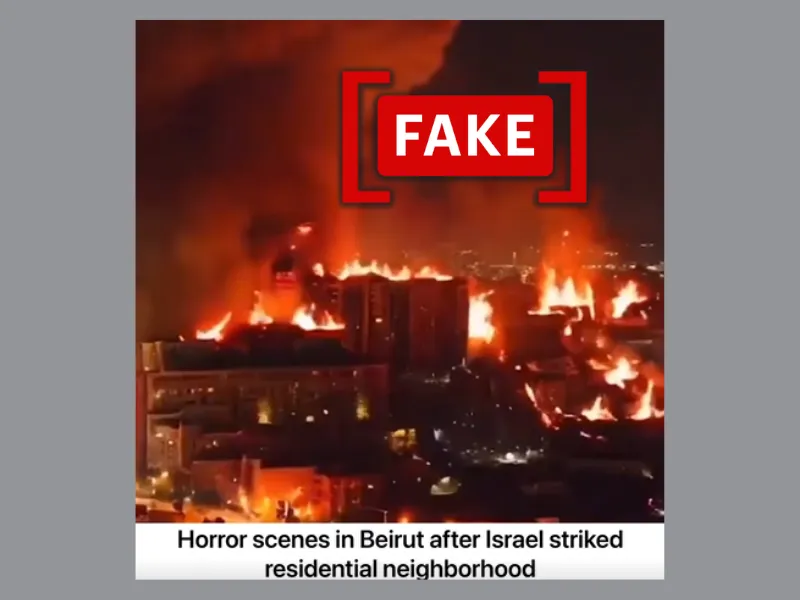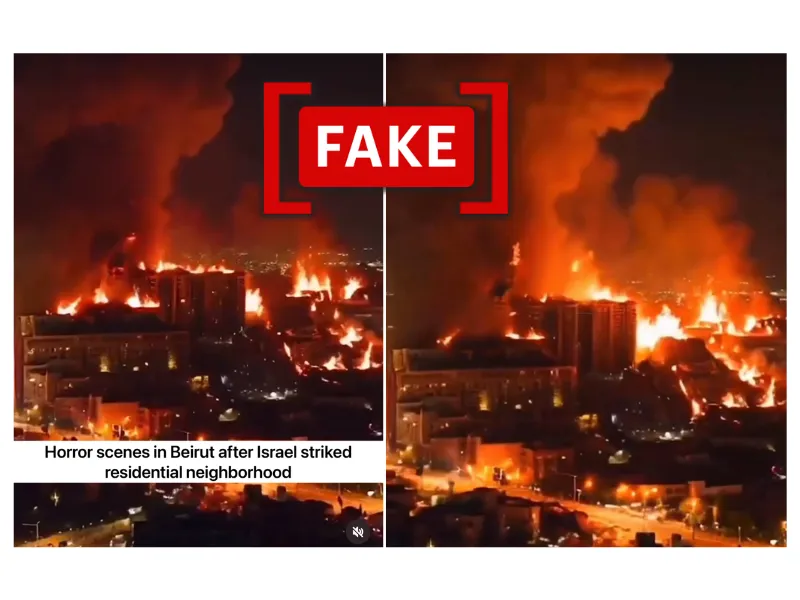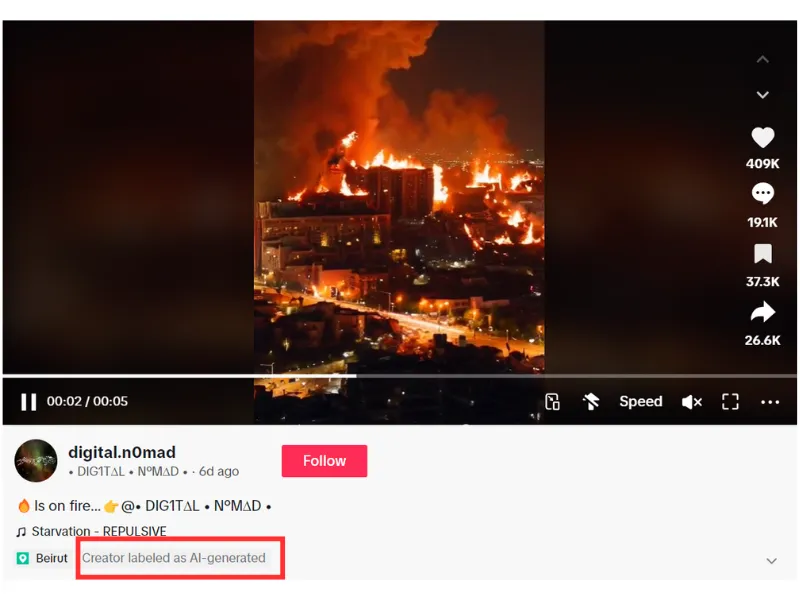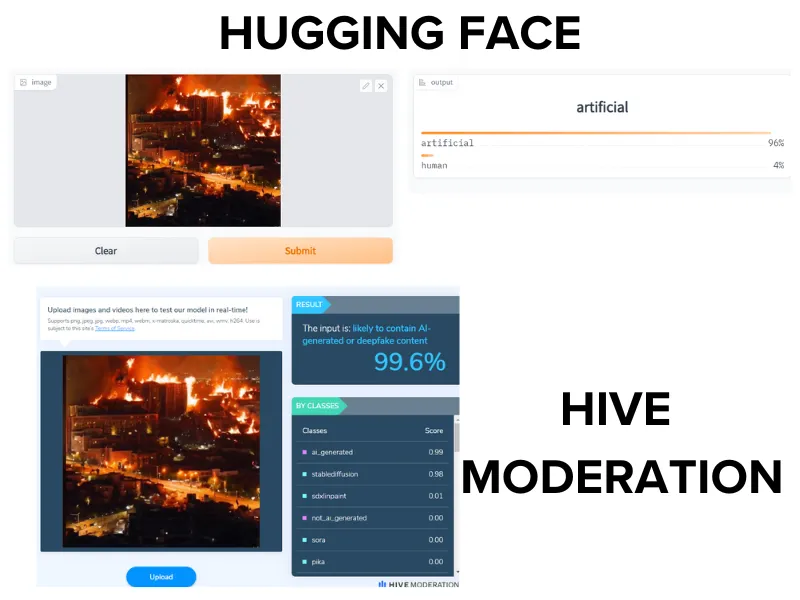By: Vanita Ganesh
October 8 2024
 Social media users circulated an AI-generated video, falsely claiming it depicts the aftermath of a recent Israeli airstrike on Beirut, Lebanon. (Source: Instagram/Modified by Logically Facts)
Social media users circulated an AI-generated video, falsely claiming it depicts the aftermath of a recent Israeli airstrike on Beirut, Lebanon. (Source: Instagram/Modified by Logically Facts)
A closer analysis of the video revealed discrepancies and irregularities, indicating it was AI-generated.
What is the claim?
A video depicting buildings on fire is circulating online, claiming to show the aftermath of Israeli airstrikes in Beirut, Lebanon. The video features text stating, “Horror scenes in Beirut after Israel struck residential neighborhood.”
An Instagram post sharing the video garnered over 80,000 likes at the time of writing. Similar claims can be found here, here, here, and here.

Screenshots of the videos on social media claiming to show Beirut after an Israeli airstrike on October 5, 2024. (Source: Instagram/Modified by Logically Facts)
The claim emerged after an Israeli airstrike on Lebanon's capital Beirut on October 5, 2024. Israel and the Lebanon-based group Hezbollah have exchanged cross-border fire over the past year following the Hamas attack on Israel in October 2023. The conflict escalated on September 27, 2024, when Israel assassinated Hezbollah leader Hassan Nasrallah.
However, we determined that the now-viral video purporting to show an Israeli attack on Beirut was digitally created using artificial intelligence (AI).
What we found
A detailed examination of the video revealed discrepancies and irregularities. For instance, the flames on the buildings appear unnatural. When we slowed down the original video, we observed that the supposed traffic visible in the frame appears to move much faster than the frame rate of the flames; the traffic resembles a timelapse, while the flames appear to be moving in real-time. These differing speeds would not occur in a naturally captured video.
Additionally, we noted that the smoke emanating from the flames is inconsistent, indicating artificial generation. There are no clear human figures or cars; instead, they appear as erratic silhouettes and light beams.
A slowed-down version of the video reveals several inconsistencies. (Source: Instagram/Modified by Logically Facts)
A reverse image search of keyframes from the video led us to the original footage, shared on TikTok by a user named “Digital Nomad” on October 1, 2024. This video is labeled “AI-generated.”

A screenshot of the video on TikTok labeled ‘AI-generated’ by the creator. (Source: TikTok)
The bio on this user’s profile (archived here) states, “Unusual AI Artist,” and contains other AI-generated videos of notable buildings and cities on fire, including Russia’s State Historical Museum in Moscow and New York City’s skyline.
We analyzed a frame from the video using online tools designed to detect AI-generated content. Hive Moderation identified a 99.6 percent likelihood that the image contained AI-generated or deepfake content. HuggingFace assessed a 96 percent possibility that the keyframe was AI-generated.

Screenshot of the results from Hive Moderation and HuggingFace that analyzed a frame from the video. (Source: Hive Moderation)
Logically Facts also uploaded the video to a deepfake detection tool called Itisaar, developed by a team led by Mayank Vatsa, a professor of computer science at IIT Jodhpur. We will update this check once we receive a response.
The video's irregularities and findings from the AI-detection tools suggest that it is not real but rather digitally created.
The verdict
The video purporting to show buildings on fire in Beirut following an airstrike is not authentic. Our investigation revealed that it was created using artificial intelligence.